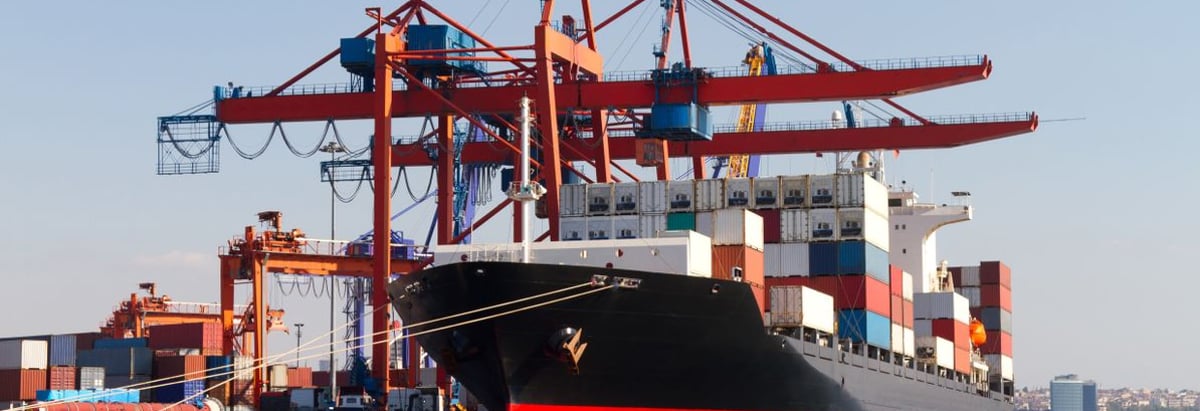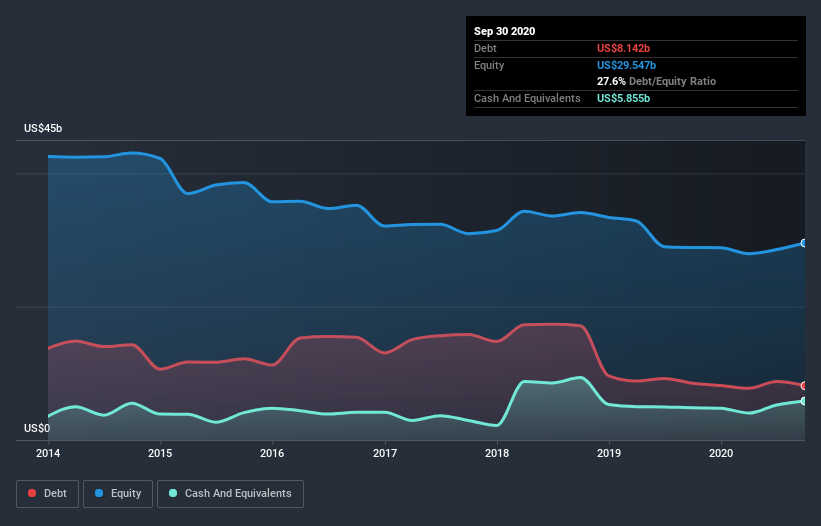- Denmark
- /
- Marine and Shipping
- /
- CPSE:MAERSK B
A.P. Møller - Mærsk (CPH:MAERSK B) Seems To Use Debt Quite Sensibly

Legendary fund manager Li Lu (who Charlie Munger backed) once said, 'The biggest investment risk is not the volatility of prices, but whether you will suffer a permanent loss of capital.' When we think about how risky a company is, we always like to look at its use of debt, since debt overload can lead to ruin. We can see that A.P. Møller - Mærsk A/S (CPH:MAERSK B) does use debt in its business. But the more important question is: how much risk is that debt creating?
Why Does Debt Bring Risk?
Debt assists a business until the business has trouble paying it off, either with new capital or with free cash flow. Ultimately, if the company can't fulfill its legal obligations to repay debt, shareholders could walk away with nothing. However, a more frequent (but still costly) occurrence is where a company must issue shares at bargain-basement prices, permanently diluting shareholders, just to shore up its balance sheet. Having said that, the most common situation is where a company manages its debt reasonably well - and to its own advantage. When we examine debt levels, we first consider both cash and debt levels, together.
See our latest analysis for A.P. Møller - Mærsk
What Is A.P. Møller - Mærsk's Debt?
The image below, which you can click on for greater detail, shows that A.P. Møller - Mærsk had debt of US$8.14b at the end of September 2020, a reduction from US$8.51b over a year. However, it does have US$5.86b in cash offsetting this, leading to net debt of about US$2.29b.

How Healthy Is A.P. Møller - Mærsk's Balance Sheet?
The latest balance sheet data shows that A.P. Møller - Mærsk had liabilities of US$9.64b due within a year, and liabilities of US$17.0b falling due after that. Offsetting this, it had US$5.86b in cash and US$5.25b in receivables that were due within 12 months. So its liabilities outweigh the sum of its cash and (near-term) receivables by US$15.5b.
While this might seem like a lot, it is not so bad since A.P. Møller - Mærsk has a huge market capitalization of US$39.2b, and so it could probably strengthen its balance sheet by raising capital if it needed to. But we definitely want to keep our eyes open to indications that its debt is bringing too much risk.
We measure a company's debt load relative to its earnings power by looking at its net debt divided by its earnings before interest, tax, depreciation, and amortization (EBITDA) and by calculating how easily its earnings before interest and tax (EBIT) cover its interest expense (interest cover). This way, we consider both the absolute quantum of the debt, as well as the interest rates paid on it.
While A.P. Møller - Mærsk's low debt to EBITDA ratio of 0.40 suggests only modest use of debt, the fact that EBIT only covered the interest expense by 3.1 times last year does give us pause. But the interest payments are certainly sufficient to have us thinking about how affordable its debt is. Pleasingly, A.P. Møller - Mærsk is growing its EBIT faster than former Australian PM Bob Hawke downs a yard glass, boasting a 131% gain in the last twelve months. There's no doubt that we learn most about debt from the balance sheet. But ultimately the future profitability of the business will decide if A.P. Møller - Mærsk can strengthen its balance sheet over time. So if you want to see what the professionals think, you might find this free report on analyst profit forecasts to be interesting.
Finally, while the tax-man may adore accounting profits, lenders only accept cold hard cash. So we clearly need to look at whether that EBIT is leading to corresponding free cash flow. Happily for any shareholders, A.P. Møller - Mærsk actually produced more free cash flow than EBIT over the last three years. That sort of strong cash generation warms our hearts like a puppy in a bumblebee suit.
Our View
A.P. Møller - Mærsk's conversion of EBIT to free cash flow suggests it can handle its debt as easily as Cristiano Ronaldo could score a goal against an under 14's goalkeeper. But the stark truth is that we are concerned by its interest cover. Looking at the bigger picture, we think A.P. Møller - Mærsk's use of debt seems quite reasonable and we're not concerned about it. While debt does bring risk, when used wisely it can also bring a higher return on equity. There's no doubt that we learn most about debt from the balance sheet. However, not all investment risk resides within the balance sheet - far from it. Case in point: We've spotted 1 warning sign for A.P. Møller - Mærsk you should be aware of.
If, after all that, you're more interested in a fast growing company with a rock-solid balance sheet, then check out our list of net cash growth stocks without delay.
When trading A.P. Møller - Mærsk or any other investment, use the platform considered by many to be the Professional's Gateway to the Worlds Market, Interactive Brokers. You get the lowest-cost* trading on stocks, options, futures, forex, bonds and funds worldwide from a single integrated account. Promoted
New: Manage All Your Stock Portfolios in One Place
We've created the ultimate portfolio companion for stock investors, and it's free.
• Connect an unlimited number of Portfolios and see your total in one currency
• Be alerted to new Warning Signs or Risks via email or mobile
• Track the Fair Value of your stocks
This article by Simply Wall St is general in nature. It does not constitute a recommendation to buy or sell any stock, and does not take account of your objectives, or your financial situation. We aim to bring you long-term focused analysis driven by fundamental data. Note that our analysis may not factor in the latest price-sensitive company announcements or qualitative material. Simply Wall St has no position in any stocks mentioned.
*Interactive Brokers Rated Lowest Cost Broker by StockBrokers.com Annual Online Review 2020
Have feedback on this article? Concerned about the content? Get in touch with us directly. Alternatively, email editorial-team@simplywallst.com.
About CPSE:MAERSK B
A.P. Møller - Mærsk
Operates as an integrated logistics company in Denmark and internationally.
Flawless balance sheet with solid track record and pays a dividend.
Similar Companies
Market Insights
Community Narratives



